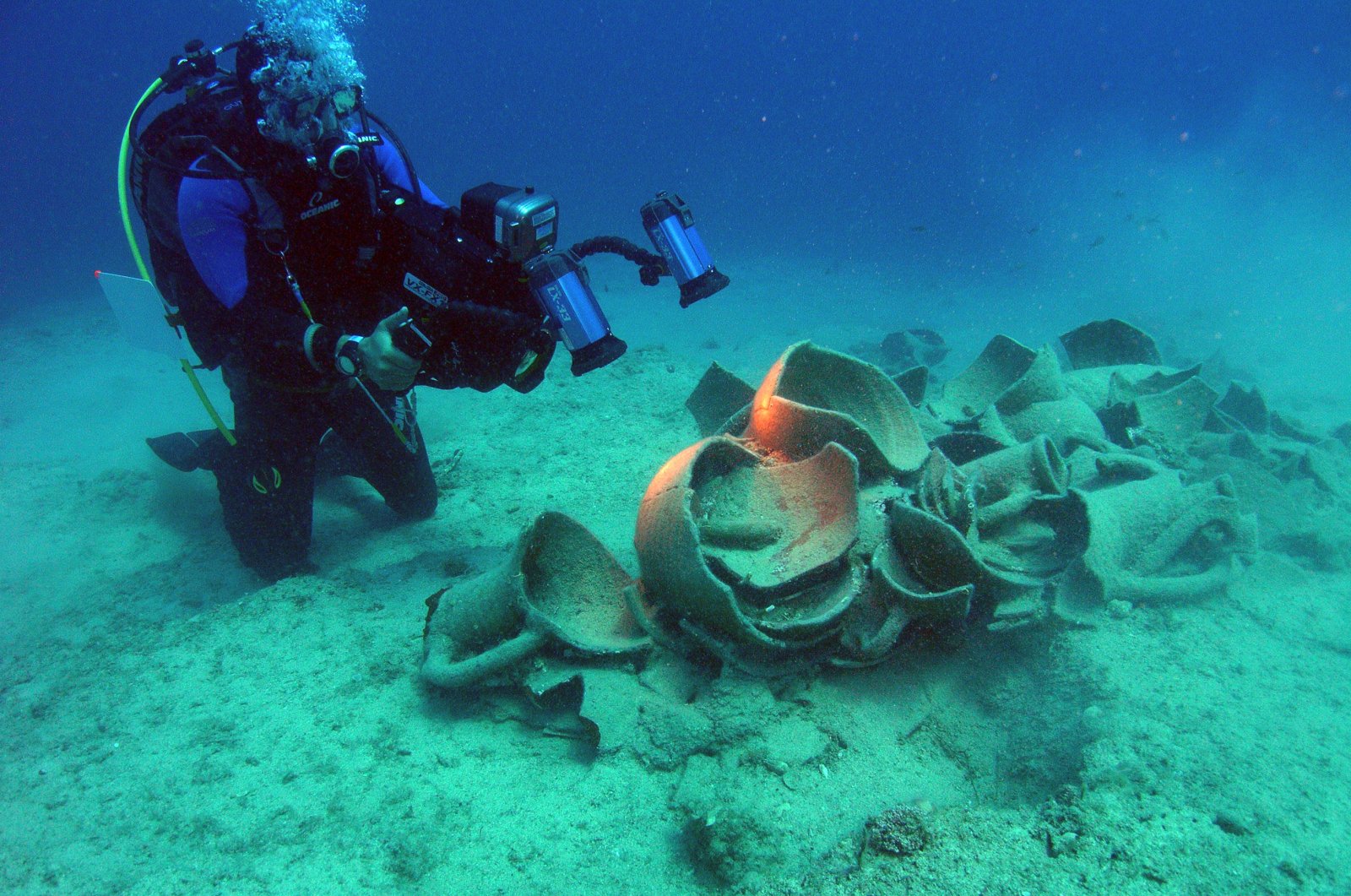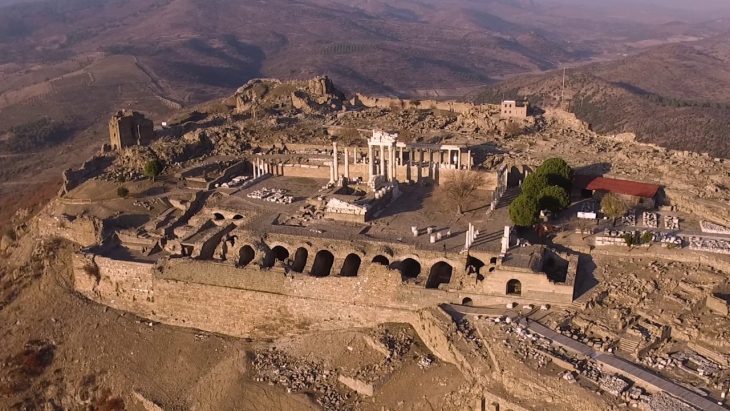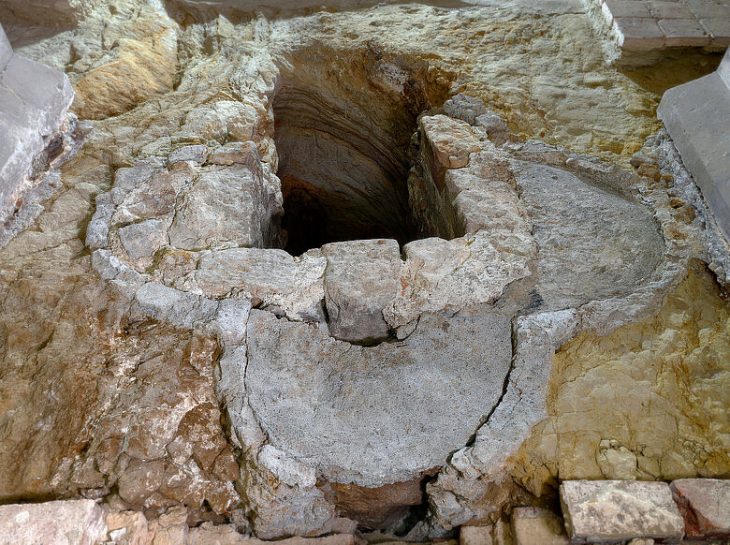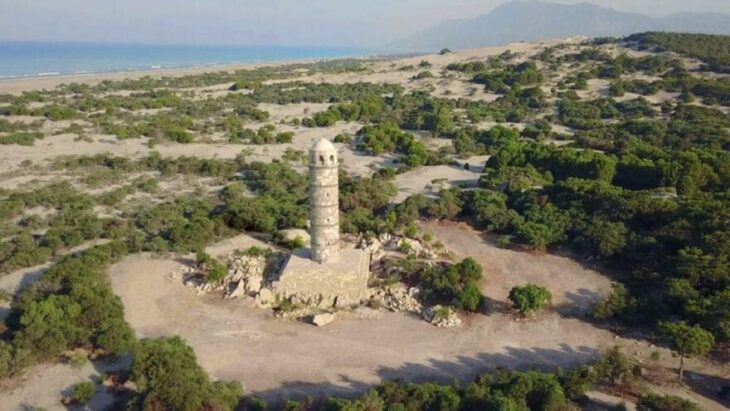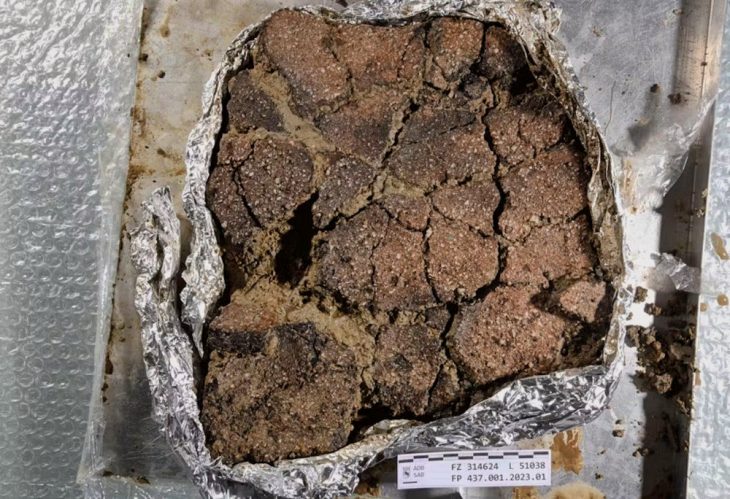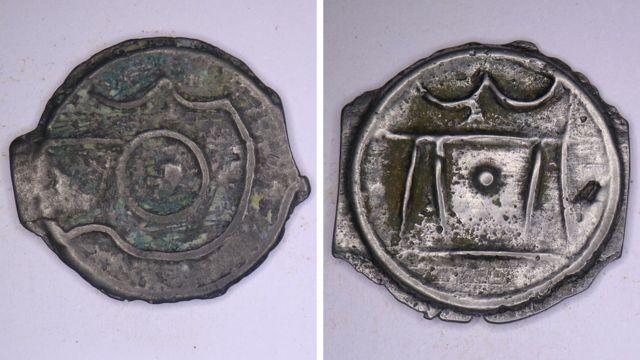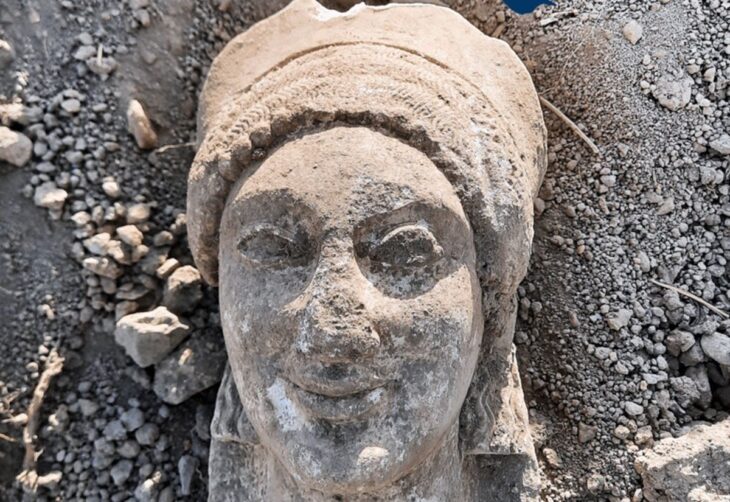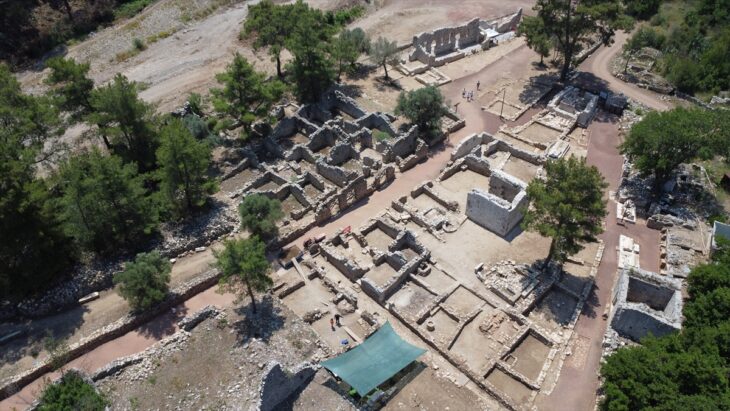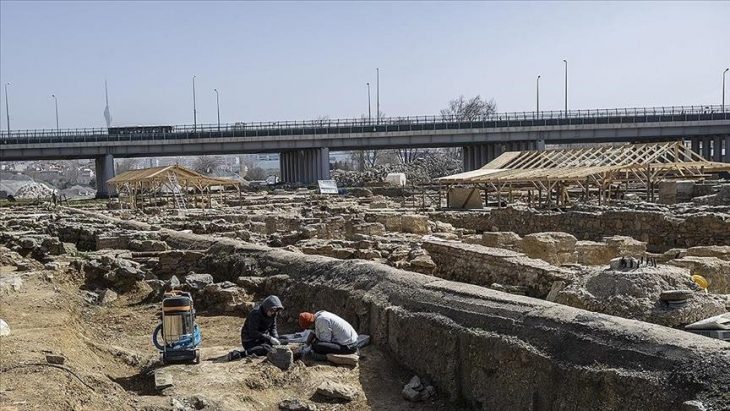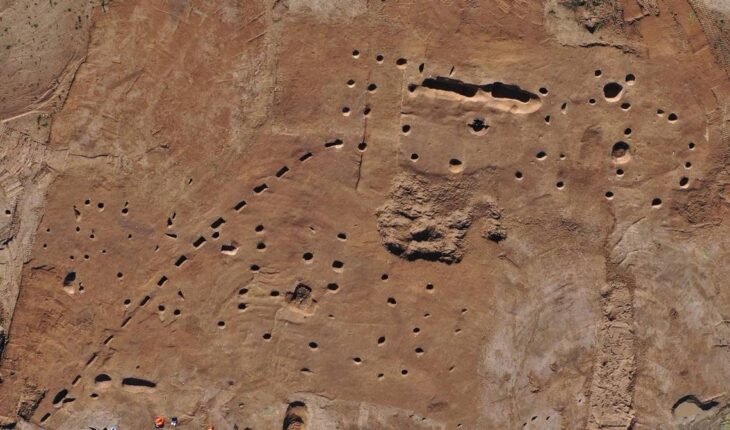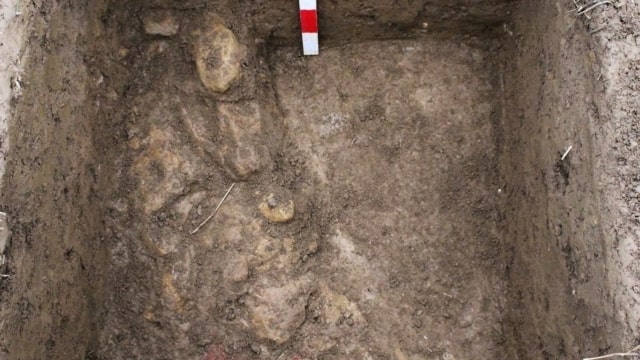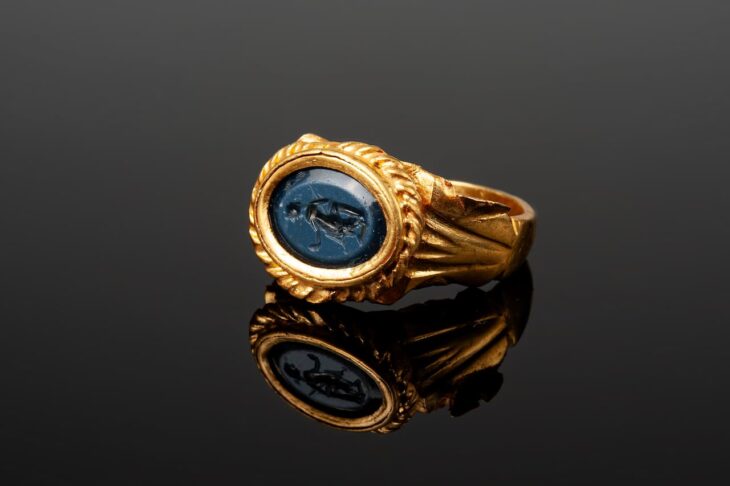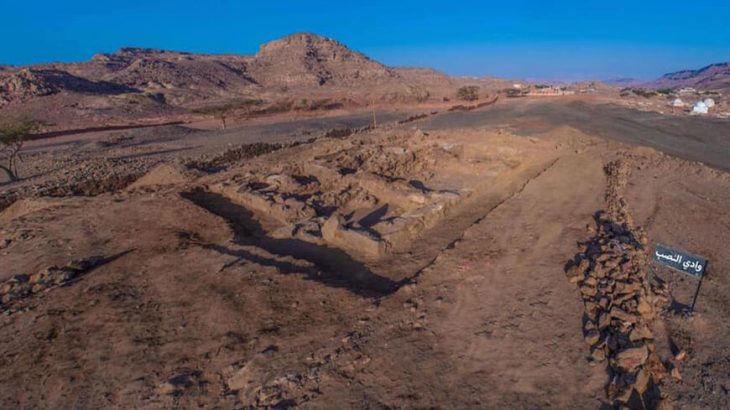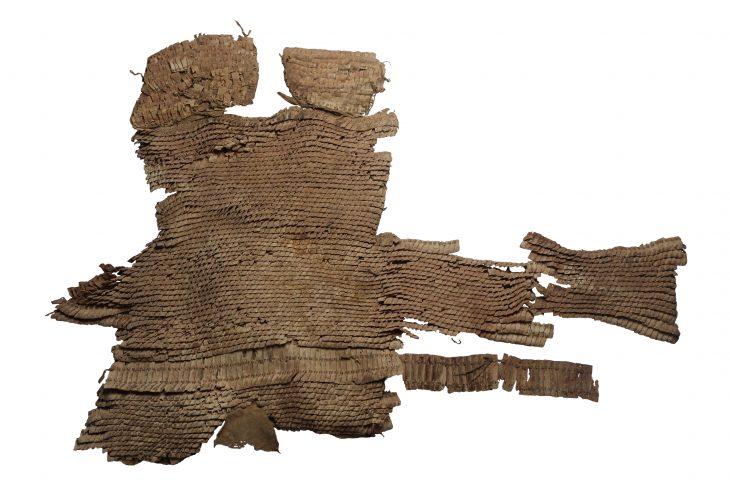Turkish researchers, a Rhodes shipwreck from the third century A.D. was discovered in the depths of the Gulf of Fethiye as part of the Turkish Shipwreck Inventory Project: Blue Heritage (TUBEP).
The underwater cultural legacy of the Fethiye coast has been mapped by researchers from Dokuz Eylül University (DEU) Marine Sciences and Technology Institute as part of the Turkish Shipwreck Inventory Project, which is financed by the Presidency of Strategy and Budget.
A Rhodes shipwreck dating from the 3rd century AD was found during the studies carried out by a team of scientists from different disciplines under the leadership of Associate Professor Harun Özdaş, Deputy Director of DEU Marine Sciences and Technology Institute.
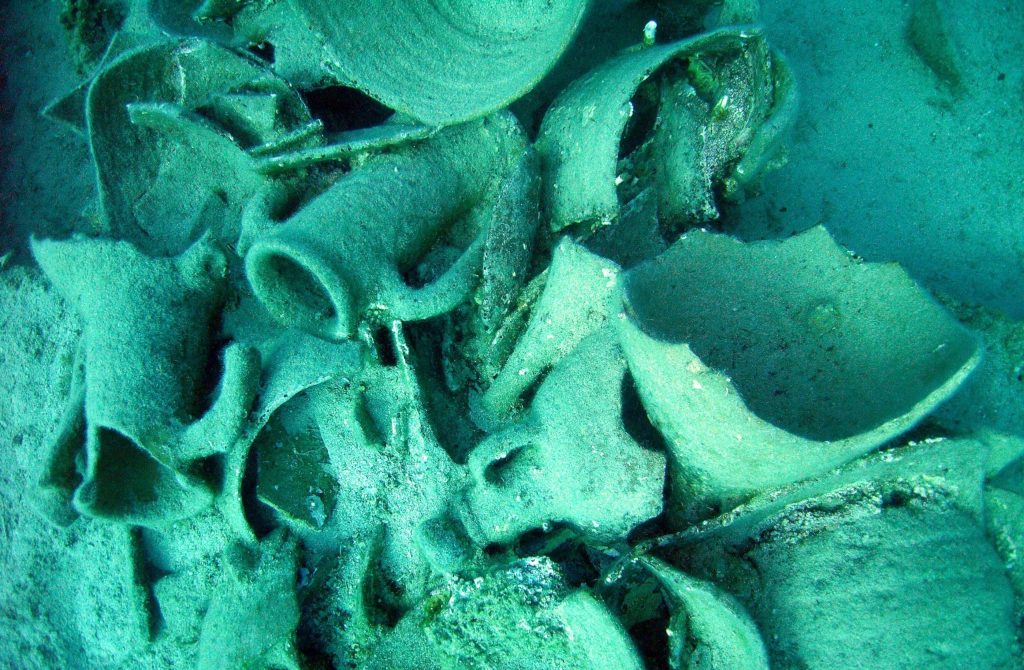
The latest works of the researchers revealed the shipwreck of Rhodes, which is discovered as three heaps on a 28-38 meter (92-125 feet) slope underwater. The shipwreck mainly features amphorae (a type of container) used for the transportation of commercial products.
The shipwreck was judged to be the “last Rhodes shipwreck” from the Roman period. The findings of the study were published in the Turkish Journal of Archeology and Ethnography.
📣 Our WhatsApp channel is now LIVE! Stay up-to-date with the latest news and updates, just click here to follow us on WhatsApp and never miss a thing!!
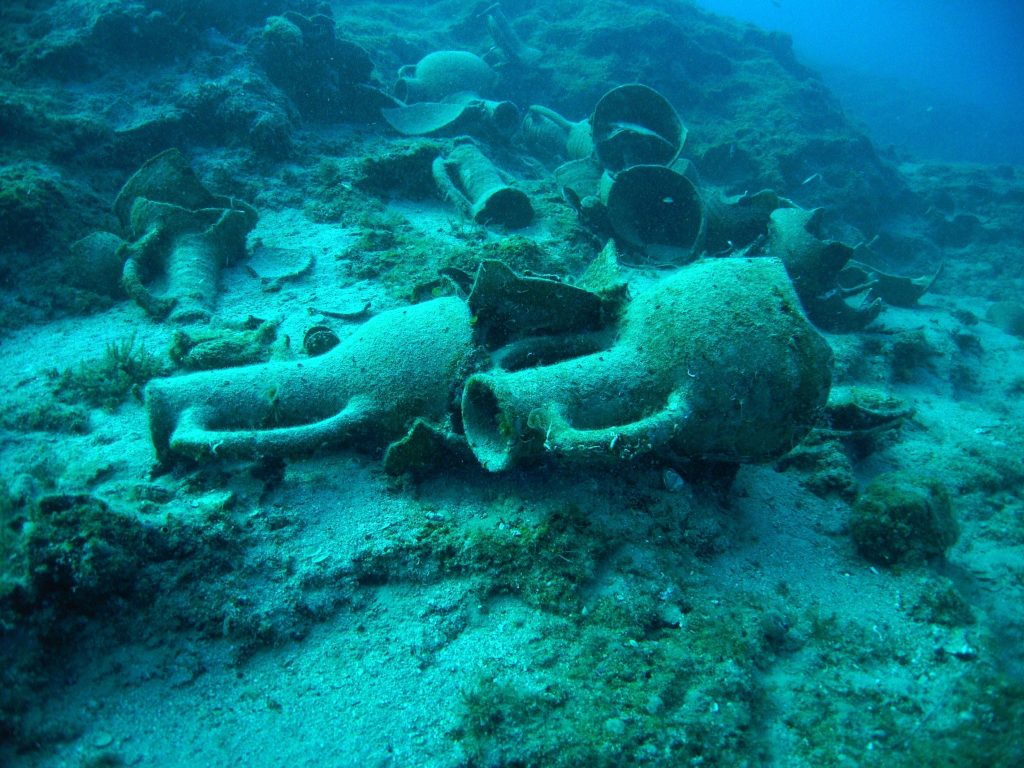
The presidency of DEU Marine Sciences and Technology Institute Vice Director associate Dr. Harun Özdaş told Anadolu Agency (AA) that they are mapping the underwater cultural heritage in the Turkish seas as part of the Turkish Shipwreck Inventory Project: Blue Heritage.
Noting that they attached special importance to the Gulf of Fethiye in the geography that opens to the Mediterranean during their studies, Özdaş said, “The most important finding of our study is the Fethiye Karaburun Rhodes shipwreck. It is a shipwreck that we date to the end of the 3rd century A.D., and its main cargo is amphorae.”
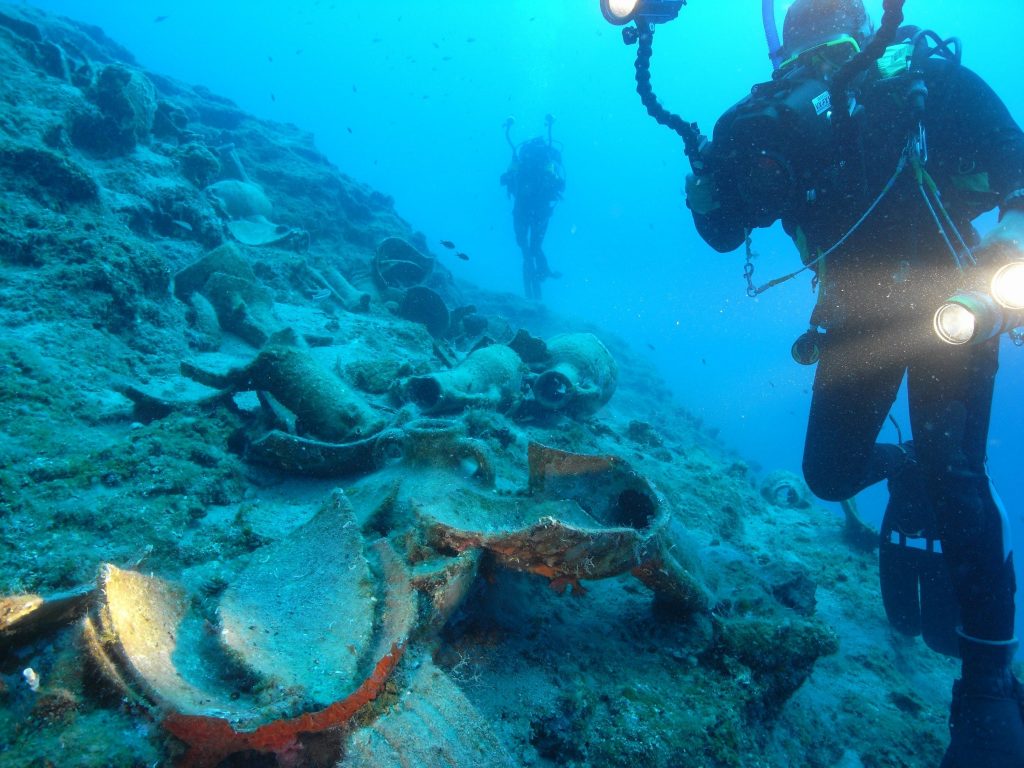
Özdaş stated that they detected “heaps” about 20 meters from the shore during the underwater survey and gave the following information: “The findings started as debris at a depth of 28 meters and a heap appeared on a slope of 30-38 meters. The amphora form with spur-handles shows the last production of Rhodes. After the 3rd century A.D., the production of these amphoras was halted. This is the only shipwreck example on the Turkish coast dated to this period. Therefore, we can say that we have reached the latest Rhodes shipwreck belonging to the Roman Period here.”
Explaining that the shipwreck consisted of amphora cargo as the wooden parts of the ship disintegrated underwater, Özdaş stated that they think the merchant ship, which might have sunk due to the storm, was 20-30 meters long.
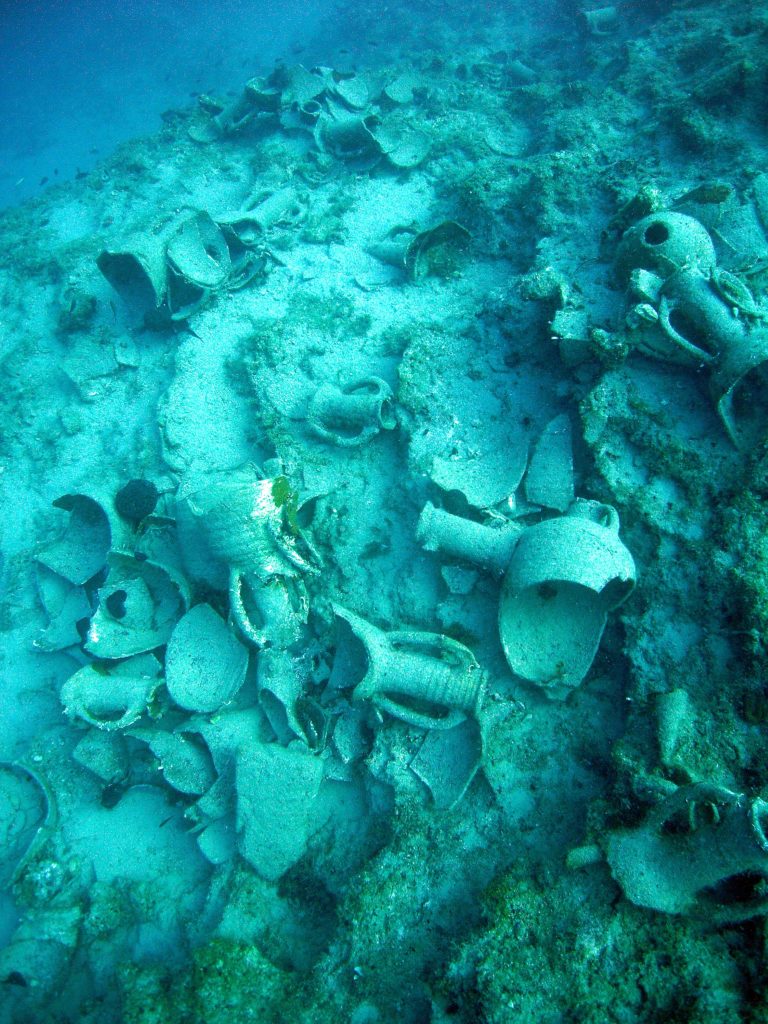
Expressing that a crew of six, including the captain, served on the merchant ships of the period, Özdaş said that Rhodes was a major main port at that time and controlled the geography of the Anatolian mainland apart from the islands.
Özdaş added, “The Rhodes amphorae found in the shipwreck probably carried products from the region of the Gulf of Fethiye. Agricultural productions were transported to Rhodes after being packaged. From there, they were sent to Mediterranean countries and European shores.”
The vice director also pointed out that within the scope of the “Turkish Shipwreck Inventory Project: Blue Heritage,” approximately 40 shipwrecks on the Aegean coast were identified and recorded to date.
Cover Photo: A researcher records amphorae found in the Rhodes shipwreck in the Gulf of Fethiye, southwestern Turkey. (AA Photo)

